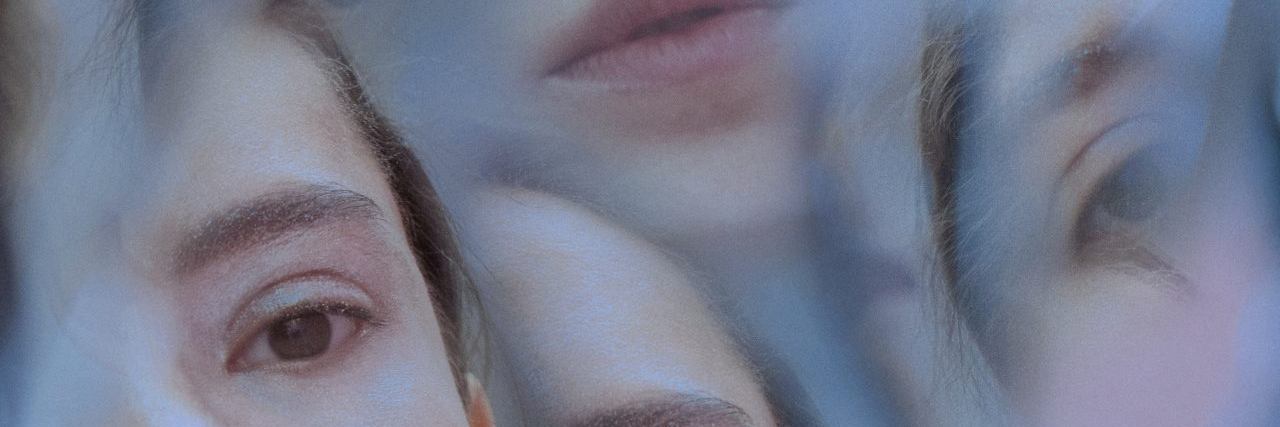I have a confession to make: I’m living with a disability, and I’m ableist.
It may seem counterintuitive that someone who has lived as disabled for a lifetime would carry ableist thoughts and beliefs, but it’s not uncommon. Those of us who live with disabilities may be fully aware of instances of ableism against us — pity from strangers, accommodation refusals from employers, well-meaning but misguided comments about our bodies from loved ones — and may still pity and berate ourselves for living with disabilities. We may even speak out about how others’ ableism affects us but privately believe that our medical conditions make us unworthy of love and belonging. It’s internalized ableism, and it’s not pretty, but it’s often our reality as people with disabilities.
My own internalized ableism began early. At just 5 years old, I was keenly aware that I was “different” from my peers — and not in a way society perceived as “good.” I often noticed stares and comments from others and soon realized that my classmate got much-desired after-school playtime instead of strenuous physical and occupational therapy appointments. Thanks to my early exposure to societal messages about disability, I’ve hated my body — and by extension, my injured brain — ever since.
My internalized ableism left me feeling like I needed to conceal any symptoms of my disability. As a preteen, I laughed at how “clumsy” I was before anyone else could assume I was disabled, refused to casually discuss my multitude of surgeries, and nearly cheered when I was told I no longer had to wear a leg brace. I had no name for the self-loathing emotions I felt and ultimately believed my internalized ableism was the key to building a fulfilling life. Meanwhile, the same internalized ableism that I believed enhanced my life was slowly killing me from the inside out.
When I finally began to open up about my cerebral palsy in my early 20s after years of staying silent, I believed that my candor would erase every last trace of my internalized ableism — but the reality was far more complicated. Sharing my story with “passing” as able-bodied initially felt challenging, but the process of gradually disclosing to friends and eventually working through my layers of self-hatred in therapy exhausted me and caused me to shut down. Despite opening up about my disability on social media and in my personal life, “outing” myself as disabled in public still terrified me, and I was hyper-aware of how I could be perceived if I disclosed.
Since I publicly disclosed my disability for the first time nearly four years ago, loved ones have expressed surprise that in some settings, I still feel uncomfortable discussing disability or representing the disability community. However, my discomfort opening up about disability experiences often shocks me as well, and my shame surrounding my medical condition often causes me to place unreasonable expectations on myself. I constantly reason that since I write about my health for a living and may come across as extremely open and honest about my medical life, I should be able to fearlessly identify myself as disabled in public and casually disclose my medical condition whenever it’s necessary. I sometimes force myself to believe that if others expect me to be more open, I should live up to their expectations.
But that’s far from my reality of living with a mostly-invisible disability and grappling with whether or not to remain open about being disabled — and I doubt I’m alone. It can be far too easy to make progress in openness and self-acceptance of a medical condition and soon slide back into old ableist mindsets. Learning to accept a health condition — and stop hating yourself for the ways your body or mind works — takes time, effort, and energy, so it may be unrealistic to expect that a person with a disability openly navigates their condition in every setting just a few years after they first begin to disclose. Struggling to remain open about a health condition in some settings while boldly self-advocating in others is neither hypocritical nor dishonest — it’s simply a reminder that accepting a disability is an extremely nuanced lifelong process.
I’m living with a disability and constantly trying my hardest to advocate for those in the disability community, but I’m still ableist. I still don’t love myself, and there are days when I’m ashamed of how my disability affects me. Above all else, though, I’m proud of how far I’ve come and willing to dismantle the mindsets that harm me and the disability community as a whole — and that’s what matters most.
Getty image by Nina Sinitskaya.

